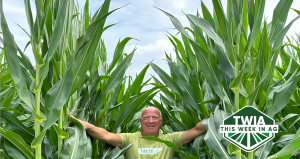The California Department of Food & Agriculture (CDFA) has registered 8 Fertilgold® Organics products as Organic Input Materials (OIM) that can be sold in the state. Those products include the following: secondary macronutrients Fertilgold® Ca and Fertilgold® Mg, and micronutrients Fertilgold® B, Fertilgold® Co, Fertilgold® Mo, Fertilgold® MoN, Fertilgold® Zn, and Fertilgold® Micros I (which contains a balanced ratio of S, B, Cu, Fe, Mo, Mn, and Zn). All Fertilgold® Organics liquid products are powered by a proprietary Micro Carbon Technology® that rapidly delivers essential nutrition to crops for optimal growth, fruiting, and vigor.
Fertilgold® Organics, a brand line of Bio Huma Netics, Inc. (the maker of Huma Gro® products for conventional farming, and Mesa Verde Humates®), offers a complete line of 25 OMRI-Listed organic fertilizers and crop protection products (see list of available products). An additional 14 Fertilgold® Organics products are currently under CDFA-OIM review.
Bio Huma Netics, Inc., is a family/employee-owned company based in Gilbert, Ariz., that has been making premium crop fertilizers and crop-protection products since 1973.
Related Posts

This Week in Ag #6
Tomorrow is National Ag Day! Just like Huma, Inc., National Ag Day is enjoying its golden anniversary. The day is dedicated to celebrating and raising awareness for how our food, fiber (and energy) is produced. This year’s theme is “Growing a Climate for Tomorrow.” Agriculture is the USA’s largest employer, responsible for 23 million jobs –

This Week in Ag #71
Farmers are not fast forgetters. They have long memories. Past weather events, cultural practices, product usage, and marketing decisions often drive future decisions. With that, I’m guilty as charged. Last season, a straight-line wind caused major greensnap to a new corn hybrid, wrecking my goals. This made me take pause and return to some of the

This Week in Ag #31
#Harvest23 is here! If all goes well, I should be harvesting my corn plot this week. The beginning of fall brings excitement and optimism to the farm. But this year, those feelings appear tempered. Farmer sentiment dropped 8 points last month (according to the Purdue Ag Economy Barometer) as producers shared a dimming view of

